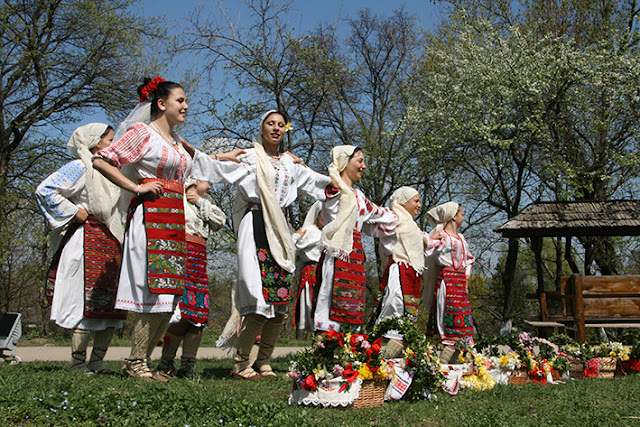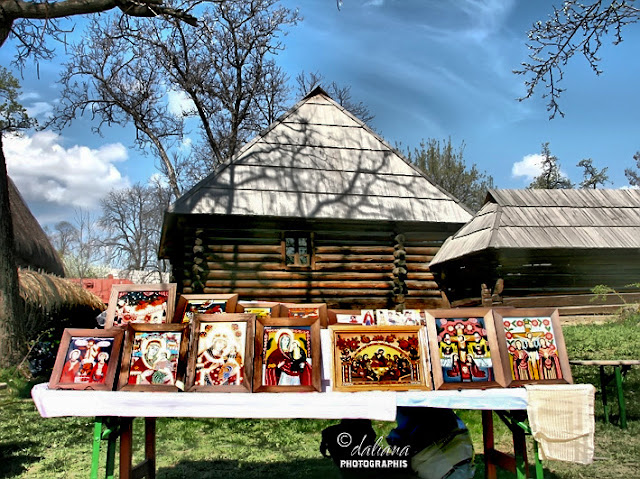ARTHALLE | VISUAL ARTS CENTRE
A unique space dedicated to contemporary art in Romania .
Arthalle Gallery - NSFW exhibition with works by Andronicuss (Bogdan Andronic) at
Budisteanu 10, 010774 Bucharest.
The opening took place on April 18th, 2019 between 7 and 9 pm.
The artist was present.
Not suitable for minors under 16.
The opening took place on April 18th, 2019 between 7 and 9 pm.
The artist was present.
Not suitable for minors under 16.
About Andronicuss :
'Experiencing truth in Andronicuss works might seem painful, horrible, scandalous, excessive, disgusting, obscene, violent or bloody, even tragic. Or hilarious.
Just like Shakespeare in the homonymous play, he organizes his puppets in an Expressionistic fictional stage, in violent paint strokes, primary colors and apparent grotesque primitive, sometimes deformed or modified, human or animal characters, imbued with archaic apotropaic elements (bones and magic masks).
Like Sisyphus who doesn’t want to return in the underworld after his promise to Pluto, the artist discovers the pleasures of the Earth and his huge appetite for the blue sky, a beautiful girl in a brothel, a bottle or two of wine, the sound of the musical instruments, the dancer, the movies and last, but not least, himself.
Andronicuss is almost always present in his paintings as the narrator/ of the massive and perpetual absurdity of the human existence, but also of its entire beauty and optimism. As Sisyphus chastised by the gods pushes his rock to the top of the mountains in an immense continuous effort, the artist alternates the harsh language of the forms with the optimism of minimal colors. The absurdity to the joy. The childish humor of his cartoon-like character depictions to the tragic of the consciousness of the author caught in a narcissistic snapshot with his camera while performing an erotic movie. The elegance of the gestures to the deformity of the characters. The grotesque to the beauty. The underworld to the Earth life.
His almost bacchanalia rhetoric of booze bottles and glasses, naked bodies in obscene positions and dancing ballerinas ends in painting, drawing or linocut in a strong stroke of his sumptuous logo-signature, the name Andronicuss being given by his mentor and friend painter, Magath.'
Diana Andrei
Just like Shakespeare in the homonymous play, he organizes his puppets in an Expressionistic fictional stage, in violent paint strokes, primary colors and apparent grotesque primitive, sometimes deformed or modified, human or animal characters, imbued with archaic apotropaic elements (bones and magic masks).
Like Sisyphus who doesn’t want to return in the underworld after his promise to Pluto, the artist discovers the pleasures of the Earth and his huge appetite for the blue sky, a beautiful girl in a brothel, a bottle or two of wine, the sound of the musical instruments, the dancer, the movies and last, but not least, himself.
Andronicuss is almost always present in his paintings as the narrator/ of the massive and perpetual absurdity of the human existence, but also of its entire beauty and optimism. As Sisyphus chastised by the gods pushes his rock to the top of the mountains in an immense continuous effort, the artist alternates the harsh language of the forms with the optimism of minimal colors. The absurdity to the joy. The childish humor of his cartoon-like character depictions to the tragic of the consciousness of the author caught in a narcissistic snapshot with his camera while performing an erotic movie. The elegance of the gestures to the deformity of the characters. The grotesque to the beauty. The underworld to the Earth life.
His almost bacchanalia rhetoric of booze bottles and glasses, naked bodies in obscene positions and dancing ballerinas ends in painting, drawing or linocut in a strong stroke of his sumptuous logo-signature, the name Andronicuss being given by his mentor and friend painter, Magath.'
Diana Andrei
Despre Andronicus:
Experimentarea adevărului în lucrările lui Andronicus ar putea părea dureroasă, oribilă, scandaloasă, excesivă, dezgustătoare, obscenă, violentă sau sângeroasă. Şi chiar tragică. Sau hilară.
La fel ca în piesa omonimă shakesperiană, artistul-regizor îşi organizează personajele-păpuşi într-o scenografie de poveste expresionistă, în culori violente, primare şi caractere aparent groteşti, primitive, uneori deformate sau modificate, umane sau animale, îmbibate cu elemente apotropaice arhaice (oase şi măşti magice).
Asemenea lui Sisif, care nu vrea sa se întoarcă in lumea cealaltă după promisiunea facută lui Pluto, artistul descoperă plăcerile pământului şi apetitul său imens pentru cerul albastru, o fată frumoasă într-un bordel, o sticlă sau două de vin, sunetul intrumentelor muzicale, dansatori, filmele şi nu în ultimul rând pe el însuşi.
Andronicuss este aproape mereu în lucrările sale naratorul absurdului masiv şi perpetuu al existenţei umane, dar şi al întregii sale frumuseţi şi al optimismului. În timp ce Sisif pedepsit de zei, îşi împinge stânca până în vârful munţilor, pastrându-şi bucuria, artistul alternează limbajul aspru al formelor cu optimismul culorilor primare. Absurditatea cu bucuria. Umorul copilăresc al imaginilor personajelor de desen animat cu tragicul conştiinţei autorului, surprins într-un instantaneu narcisist cu camera în timp ce realizează un film erotic. Eleganţa gesturilor cu deformarea personajelor. Grotescul cu frumosul. Lumea cealaltă cu viaţa pe pământ.
Retorica sa aproape bacanalică, cu sticle şi pahare de băutură, corpuri goale în poziţii obscene şi balerine dansând, se încheie în pictură, în desen sau în linogravură, în tuşa puternică a semnăturii sale somptuoase, numele Andronicuss fiind dat de mentorul şi prietenul său pictor, Magath.
Diana Andrei
La fel ca în piesa omonimă shakesperiană, artistul-regizor îşi organizează personajele-păpuşi într-o scenografie de poveste expresionistă, în culori violente, primare şi caractere aparent groteşti, primitive, uneori deformate sau modificate, umane sau animale, îmbibate cu elemente apotropaice arhaice (oase şi măşti magice).
Asemenea lui Sisif, care nu vrea sa se întoarcă in lumea cealaltă după promisiunea facută lui Pluto, artistul descoperă plăcerile pământului şi apetitul său imens pentru cerul albastru, o fată frumoasă într-un bordel, o sticlă sau două de vin, sunetul intrumentelor muzicale, dansatori, filmele şi nu în ultimul rând pe el însuşi.
Andronicuss este aproape mereu în lucrările sale naratorul absurdului masiv şi perpetuu al existenţei umane, dar şi al întregii sale frumuseţi şi al optimismului. În timp ce Sisif pedepsit de zei, îşi împinge stânca până în vârful munţilor, pastrându-şi bucuria, artistul alternează limbajul aspru al formelor cu optimismul culorilor primare. Absurditatea cu bucuria. Umorul copilăresc al imaginilor personajelor de desen animat cu tragicul conştiinţei autorului, surprins într-un instantaneu narcisist cu camera în timp ce realizează un film erotic. Eleganţa gesturilor cu deformarea personajelor. Grotescul cu frumosul. Lumea cealaltă cu viaţa pe pământ.
Retorica sa aproape bacanalică, cu sticle şi pahare de băutură, corpuri goale în poziţii obscene şi balerine dansând, se încheie în pictură, în desen sau în linogravură, în tuşa puternică a semnăturii sale somptuoase, numele Andronicuss fiind dat de mentorul şi prietenul său pictor, Magath.
Diana Andrei


























































